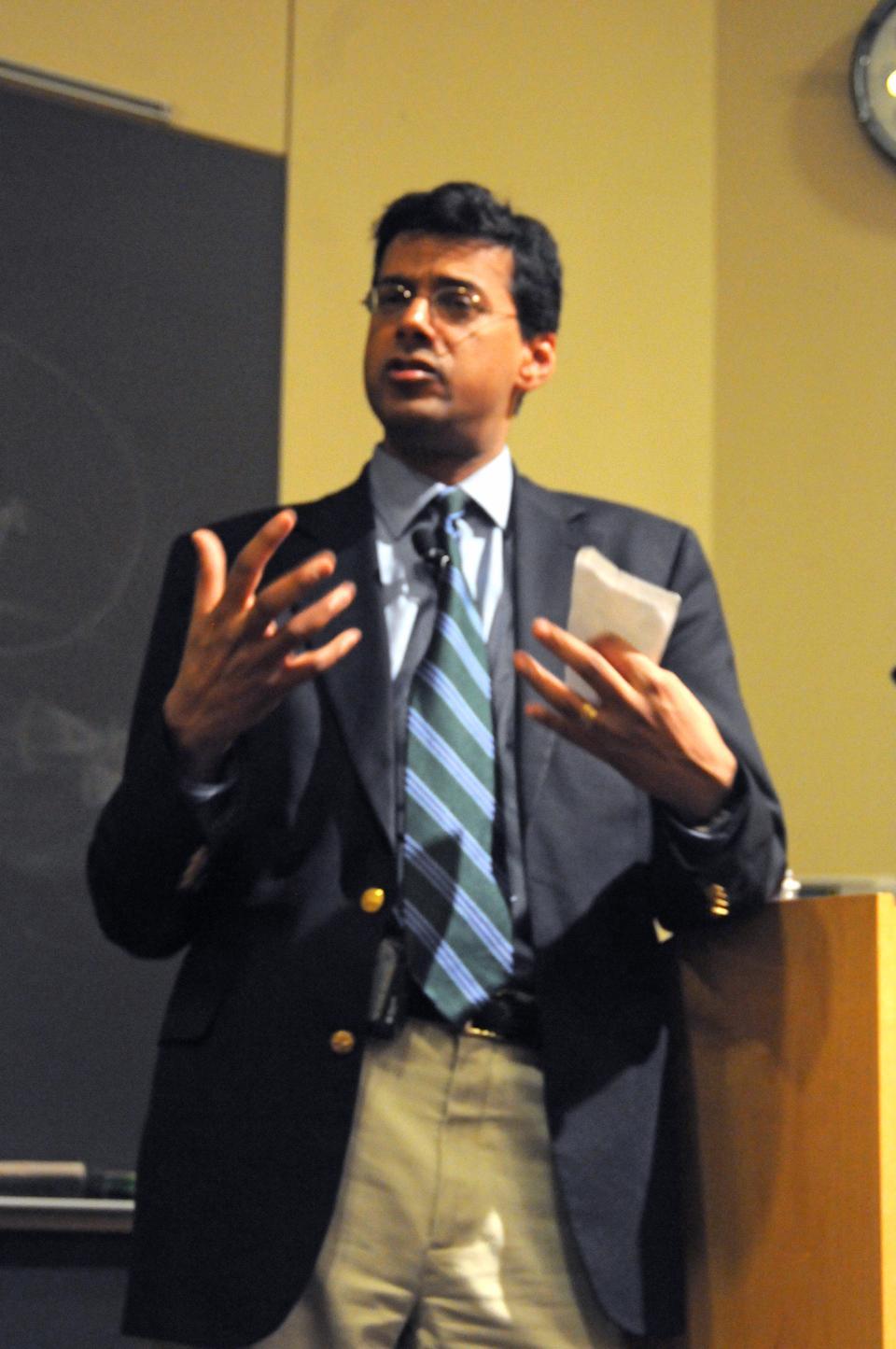
News
News Flash: Memory Shop and Anime Zakka to Open in Harvard Square

News
Harvard Researchers Develop AI-Driven Framework To Study Social Interactions, A Step Forward for Autism Research

News
Harvard Innovation Labs Announces 25 President’s Innovation Challenge Finalists

News
Graduate Student Council To Vote on Meeting Attendance Policy

News
Pop Hits and Politics: At Yardfest, Students Dance to Bedingfield and a Student Band Condemns Trump
Surgeon Extols the Virtue of Checklists

In the introduction of his latest book, “The Checklist Manifesto: How to Get Things Right,” Atul A. Gawande writes about the double-edged nature of knowledge: it “has both saved and burdened us,” he states. Gawande goes on to write that in tasks as complex as piloting aircraft, constructing skyscrapers, and investing, even today’s most qualified professionals have made grave mistakes.
Last night, as a guest of the Harvard Writers at Work Lecture Series, Gawande questioned how these critical—but preventable—errors persist in his own field: medicine.
According to Gawande, who is currently a surgeon at Brigham and Women’s Hospital and an associate professor at Harvard Medical School and the School of Public Health, the solution is “simple”—a checklist.
In 2006, the World Health Organization assigned Gawande what he called a “daunting” task: to reduce deaths from surgery around the globe. He began his project by distributing surgical safety checklists to eight hospitals—from impoverished clinics in New Delhi and Tanzania to leading hospitals in Seattle and London.
Gawande said that in hospitals both rich and poor, “the checklists reduced the average rate of surgical complications over three months by 36 percent.”
But regardless of the hospital, “what we struggle with day-to-day is complexity,” Gawande said to the packed audience in Fong Auditorium last night.
He added that his surgical safety checklist, which was the product of months of revision, reduces this struggle. Two of his basic “checks” include timing antibiotic injections before incision, and instructing operating team members to tell each other their names and voice their concerns before surgery.
Gawande—who is also a staff writer for The New Yorker magazine and the best-selling author of two other books: “Better: A Surgeon’s Notes On Performance” and “Complications: A Surgeon’s Notes on an Imperfect Science”—says he is a surgeon first. But he has also been distinguished for his writing.
Karen L. Heath, senior preceptor of Expository Writing, said that Gawande was “one of the first writers we considered” for Harvard Writers at Work.
“It seems like everyone is listening to what Dr. Gawande has to say...from the Obama Administration, to the editors at the New Yorker, to all of the readers of his books,” Heath said. She added that “that is why we thought it would be perfect for Dr. Gawande to speak to us.”
The lecture series—organized by the Harvard College Writing Program, the Harvard Extension School Writing Program, and Harvard Review—features authors from a wide array of professional fields and personal backgrounds.
“The hope is that students will be inspired, ask questions, and learn about these authors’ lives,” Heath said.
Want to keep up with breaking news? Subscribe to our email newsletter.
From Our Advertisers

Over 300+ courses at prestigious colleges and universities in the US and UK are at your disposal.

Where you should have gotten your protein since 1998.

Serve as a proctor for Harvard Summer School (HSS) students, either in the Secondary School Program (SSP), General Program (GP), or Pre-College Program.

With an increasingly competitive Law School admissions process, it's important to understand what makes an applicant stand out.

Welcome to your one-stop gifting destination for men and women—it's like your neighborhood holiday shop, but way cooler.

HUSL seeks to create and empower a community of students who are seeking pathways into the Sports Business Industry.
